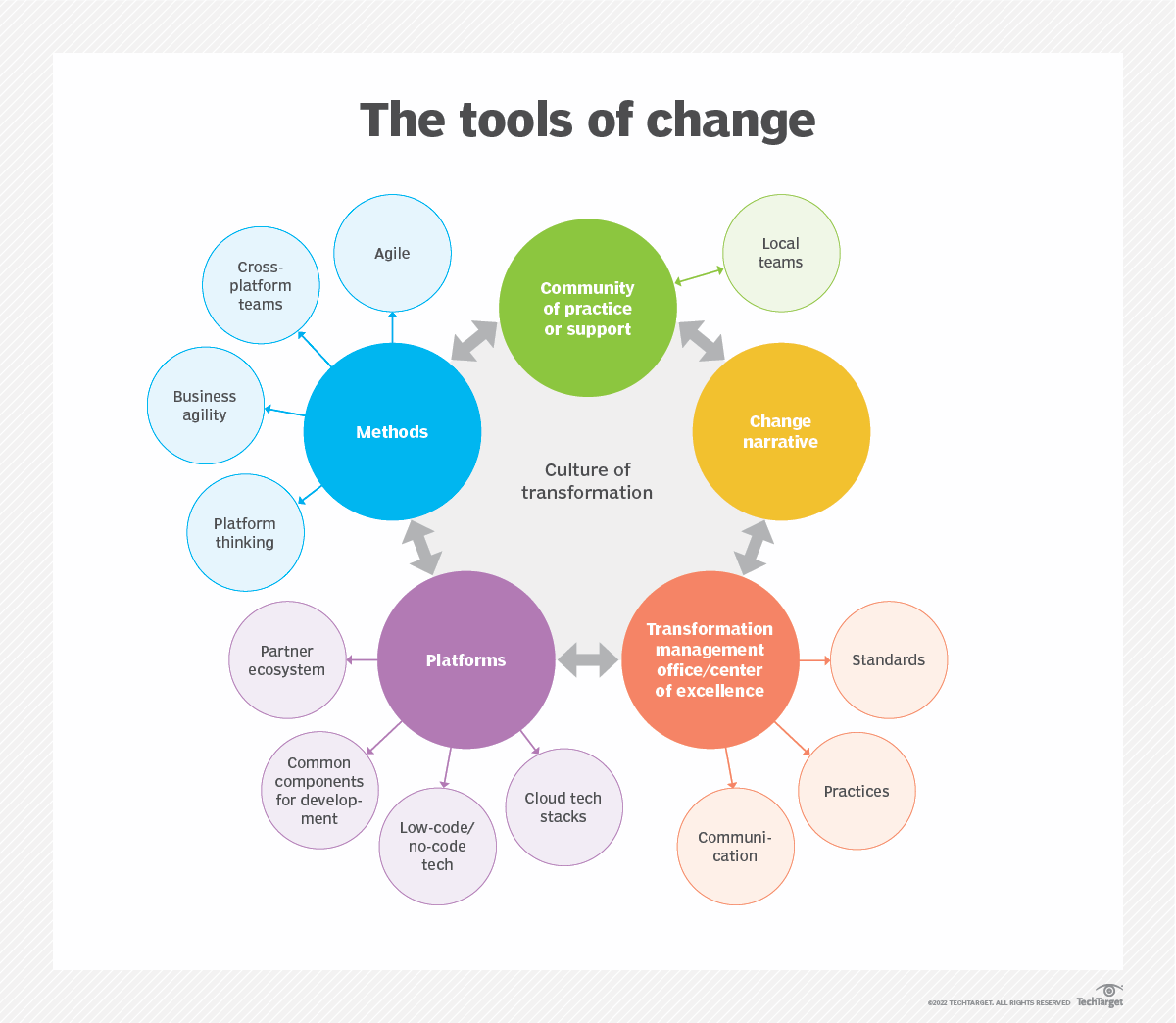

Announcements
- Artificial intelligence and machine learning continue to create value streams across different industries and verticals. With significant challenges standing in the way of AI Integration, the three-day Machine Learning & Artificial Intelligence summit features free talks and presentations from industry experts to help successfully break through barriers and take your analytics strategy to the next level. Join live or on-demand to discover the advantages of incorporating advanced analytics into your business strategy and learn exactly how to do it from the world’s leading BI experts. in the form of live webinars, panel discussions, keynote presentations, and webcam videos.
- The workplace is still reckoning with how the pandemic fueled emerging trends in remote work, work/life balance, productivity, and generational attitudes towards what defines a successful career. Join the three-day Transforming the Future of Work summit to hear from leading HR visionaries and experts who will share how businesses can negotiate the lasting impacts of the changes Covid-19 wrought on the workplace. They will examine the full employee experience, from onboarding and recruitment to culture, engagement, and innovation.
Metaverse Misfires
Technology consultant Jeffrey Funk recently posted a significant essay worth reading on LinkedIn about the vision vs. the reality of the Metaverse. Among his other comments, he makes the following observations:
A year ago, corporations sucked deep on the hype pipe for virtual reality and offered it around. We weren’t convinced. All that investment, all that #technology, to recreate a drab pastiche of the very environments we’d gratefully escaped in the magical world of WFH. Without imagination, without soul, with no humanity, who would want to visit?
Since then, billions have continued to pour into Metaverse Money Dematerialiser that lives in Zuckerberg’s basement. The #VR revolution seems no closer. The CEO himself celebrated the launch of Horizon Worlds in Spain and France with an in-world image of a dead-eyed robot selfie against a landscape of mid-’90s clip art. It was as awful as a year ago. Where is the cash going?
Here’s one answer: fighting user #privacy. One of the first steps towards protecting your VR identity across sessions, an open-source academic project called MetaGuard, are counter-measures coming from corporations that are undermining the project. Because that’s what matters to the creator gods of the new universes.
https://www.linkedin.com/feed/update/urn:li:activity:6969607888713519104/
One of the central concepts of the metaverse is the notion that every person has a single sign-on controlled by the vendors, which can, in turn, be used to track users as they move from one virtual world to another. This gets back to the point discussed in last week’s DSC Weekly: the challenge of a globally integrated environment is that privacy disappears, at least as designed now. In a walled private environment, this makes a certain amount of sense: Access to features is very much dependent upon being able to prove your right to access of those features. However, for a public trust such as the Internet or the potential metaverse, giving up your privacy should not be the price you pay for accessing the basic features.
There are solutions. The Solid project, the most recent brainchild of Tim Berners-Lee, provides one alternative: Flipping the script so that you retain your personal information and can control access to this information. Such information is marketing gold, and the assumption is that corporations will play ball with the user for access to that information because it is the most timely and up-to-date. This can be extended to access control levels (ACLs), so metaverse worlds would need to query a person’s Solid pod before performing actions on their behalf (known or unknown).
Another project that attempts to combat this is Metaguard, a project that attempts to do for the metaverse what commercial GPS does for military signals. Military GPS systems are remarkably good, with resolutions down to about 10 cm. However, for security and other reasons, commercial-grade GPS systems include a chip that blurs that resolution to about 10 m – close enough to determine a location for driving applications but usually not close enough to identify a particular person. Metaguard attempts to do the same thing for metaverse systems, making it harder to identify a person by their location or other similar signals, which is one way that augmented reality determines where you are in relationship to others. It, in effect, creates the equivalent of quantum uncertainty about where (and consequently who) you are.
Ultimately, I suspect it that the bigger privacy influence will come from the people participating (willingly or not) in the metaverse as a connected ecosystem, and it will have to do with the nature of how we build these ecosystems. The web emerged fairly early as a viable system because the tools for creating that web were freely available. It’s noteworthy there, too, that once the potential of the web became obvious that there was a rush to create walled gardens: everyone scrambled for eyeballs and captures and mechanisms to keep people engaged within silos (especially in the realm of e-commerce, which was the forerunner of today’s de fi movement and collapsed just as egregiously back in 2000).
What I’d personally like to see (and please, if you are in education, contact me about this) is an open-source project built around one of the existing open 3D platforms that would bring the simplicity of a Hypercard or similar toolkit used in 3D game design for educational purposes. It would be run as a massive multiplayer “classroom” world, where the assets are created by the students themselves with some guidance from teachers, in what would amount to a public MOOC meets MOO. It would have its own economic system (one that you couldn’t buy into from the outside or convert to the outside), and would rely upon people chosen as moderators (teachers or older students) to keep it from getting too dark. I suspect that a system like this could prove to be a real test bed for what would and would not work within a metaverse and would also solve one of the other main challenges that both metaverses and education suffer from: difficulty creating challenging content.
While on the topic of Metaverses, our own Ajit Joakar this week explores the very definition of what makes up a metaverse, and provides additional insights into where this technology is going.
In media res,
Kurt Cagle
Community Editor
Data Science Central
Data Science Central Editorial Calendar: September 2022
Every month, I’ll update this section with many topics I’m especially looking for in the coming month. These are more likely to be featured in our spotlight area. If you are interested in tackling one or more of these topics, we have the budget for dedicated articles. Please contact Kurt Cagle for details.
- Generative AI (GANs, and NERFs)
- Gaming AI
- Sustainability and Climate AI
- Education and AI
- Web 5
- Metaverse Next Steps
- Weather Report: State of Cloud
- Ethical AI
If you are interested in posting something else, that’s fine too, but these are areas that we believe are hot right now.
DSC Featured Articles
- How to Make Black-box Systems more Transparent
Vincent Granville on 30 Aug 2022 - Semantic Graph as the Next Step for Web Data Architecture
Alan Morrison on 30 Aug 2022 - A Model For Technical Debt In Machine Learning Systems
Soumen Sarkar on 30 Aug 2022 - Data cleansing for reliable analytics and business intelligence
Zara Ziad on 30 Aug 2022 - What is a Data Quality Framework and How to Implement it?
Zara Ziad on 30 Aug 2022 - How to Overcome Challenges in Digital Transformation
Edward Nick on 30 Aug 2022 - Blockchain Technology: The Future of the Manufacturing Industry
KathieAdams on 30 Aug 2022 - How Technology is Driving New Climate Change Solutions
Evan Morris on 30 Aug 2022 - We Live in a Bayesian World – Part 2
Bill Schmarzo on 30 Aug 2022 - Visual Marketing: Vulnerable to cybercrimes?
Evan Morris on 30 Aug 2022 - Digital Door Lock Systems For Residential and Commercial Sectors
DineshBhol on 30 Aug 2022 - Fractals and Economy
Osama Rizvi on 30 Aug 2022 - A Comprehensive Definition of the Metaverse
ajitjaokar on 29 Aug 2022 - Top 10 Benefits of Digital Transformation Adoption
Edward Nick on 26 Aug 2022 - DSC Weekly 23 August 2022:
Five Billion Person Graph: Grand Achievement or Wakeup Call?
Kurt Cagle on 23 Aug 2022
Picture of the Week


